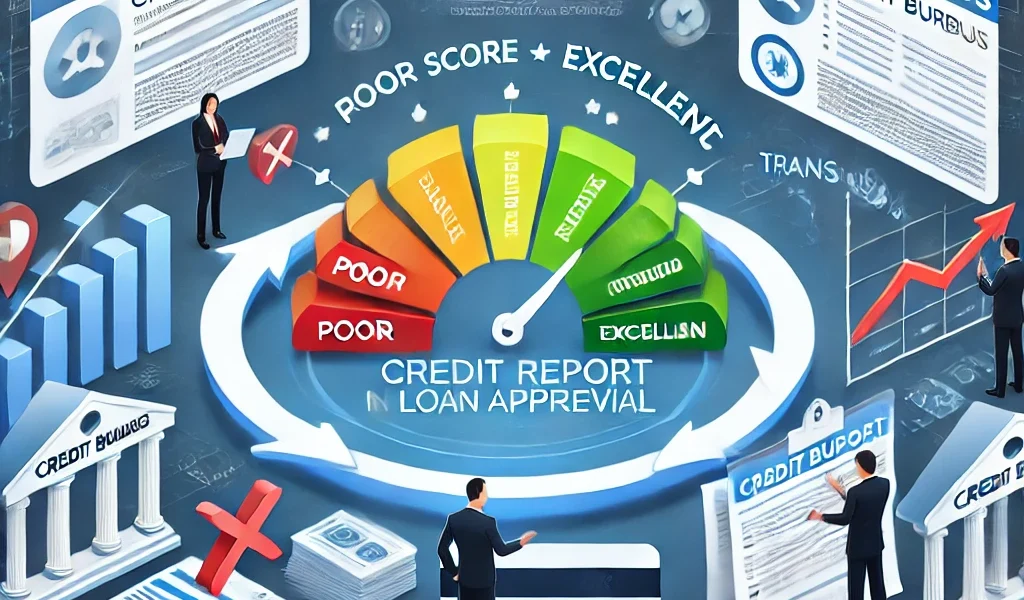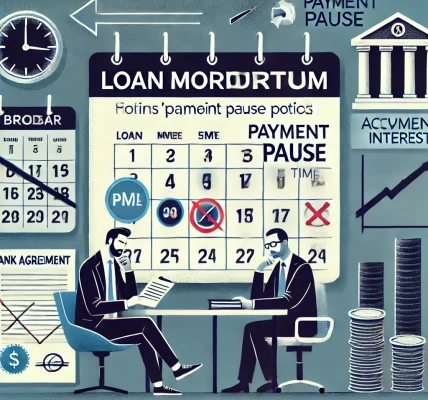Introduction
When applying for a loan, lenders assess various factors to determine whether an applicant qualifies for financing. One of the most critical elements in this evaluation process is the applicant’s creditworthiness, which is largely determined by credit bureaus. These agencies collect, analyze, and maintain credit information, which helps lenders make informed decisions about approving or denying loan applications.
This article delves into the role of credit bureaus in loan approval, how they impact your borrowing ability, and ways to maintain a healthy credit profile.
What Are Credit Bureaus?
A credit bureau is an organization that gathers and maintains consumer credit information from various financial institutions, lenders, and service providers. These agencies compile data on individuals’ credit histories, including borrowing behavior, payment records, and overall financial responsibility.
Major Credit Bureaus
While different countries have varying credit reporting agencies, the three most recognized credit bureaus in the United States are:
- Equifax
- Experian
- TransUnion
Each of these bureaus maintains independent credit reports, meaning information in one bureau’s report may slightly differ from another’s.
How Do Credit Bureaus Collect Information?
Credit bureaus collect data from various sources, including:
- Banks and financial institutions – Reporting credit card usage, loan payments, and overdrafts.
- Lenders – Providing details on mortgages, auto loans, personal loans, and more.
- Utility companies – Recording bill payments for services like electricity and phone bills.
- Public records – Noting bankruptcies, tax liens, and court judgments.
- Debt collection agencies – Reporting accounts that have been sent to collections.
This information is compiled into a credit report, which serves as the foundation for calculating an individual’s credit score.
The Role of Credit Bureaus in Loan Approval
When you apply for a loan, lenders rely on credit bureaus to assess your creditworthiness. Here’s how credit bureaus influence the loan approval process:
1. Credit Score Calculation
Credit bureaus use your credit history to generate a credit score, typically ranging from 300 to 850. The score is calculated based on:
- Payment History (35%) – Timely or late payments on credit accounts.
- Credit Utilization (30%) – The percentage of available credit being used.
- Credit History Length (15%) – The duration of credit accounts.
- Types of Credit (10%) – The mix of credit accounts (loans, credit cards, mortgages, etc.).
- New Credit Inquiries (10%) – The number of recent credit applications.
Lenders use this score as a key determinant in loan approval decisions.
2. Evaluating Credit Reports
Apart from the credit score, lenders review credit reports to analyze financial habits. Red flags such as multiple missed payments, excessive debt, or bankruptcies can significantly impact loan approval.
3. Determining Interest Rates and Loan Terms
Credit bureaus help lenders assess risk levels. Applicants with higher credit scores typically receive lower interest rates and better loan terms, whereas those with poor scores may face higher interest rates or loan denials.
4. Fraud Prevention and Identity Verification
Credit bureaus assist in verifying an applicant’s identity and detecting potential fraud by tracking inconsistencies or suspicious activities in credit reports.
How to Maintain a Healthy Credit Profile for Loan Approval
If you’re planning to apply for a loan, maintaining a good credit profile is essential. Here are some best practices:
1. Pay Bills on Time
Since payment history accounts for the largest portion of your credit score, timely payments on credit cards, loans, and utility bills are crucial.
2. Monitor Your Credit Reports Regularly
Check your credit reports from all three major bureaus to identify errors or fraudulent activity. You’re entitled to a free credit report annually from AnnualCreditReport.com.
3. Keep Credit Utilization Low
Avoid using more than 30% of your available credit limit to maintain a strong credit score.
4. Limit New Credit Applications
Applying for multiple loans or credit cards in a short period can negatively impact your credit score. Only apply for credit when necessary.
5. Diversify Credit Types
A mix of different types of credit (such as credit cards, auto loans, and mortgages) can positively affect your credit profile, demonstrating responsible financial behavior.
6. Address Any Negative Items
If you have outstanding debts, work on paying them off. If you have a record of late payments, start making consistent on-time payments to rebuild creditworthiness.
Common Myths About Credit Bureaus and Loan Approval
There are many misconceptions about credit bureaus and their role in loan approvals. Let’s debunk some of them:
1. Credit Bureaus Approve or Deny Loans
False – Credit bureaus only provide credit information. Lenders make final decisions based on this data.
2. Checking Your Own Credit Report Lowers Your Score
False – Self-checking your credit score (a soft inquiry) does not affect your score; only hard inquiries from lenders do.
3. All Three Bureaus Have the Same Information
False – Lenders may report to one, two, or all three bureaus, leading to slight differences in credit reports.
4. Paying Off Debt Instantly Boosts Credit Score
Partially True – While paying off debt improves your credit profile, it may take some time to reflect in your credit score.
Conclusion
Credit bureaus play a pivotal role in the loan approval process by maintaining accurate credit records and helping lenders assess risk. A strong credit history increases the chances of loan approval, favorable interest rates, and better borrowing terms.
By paying bills on time, managing debt wisely, and monitoring credit reports, borrowers can maintain a healthy credit profile and improve their chances of securing a loan with the best possible terms.




